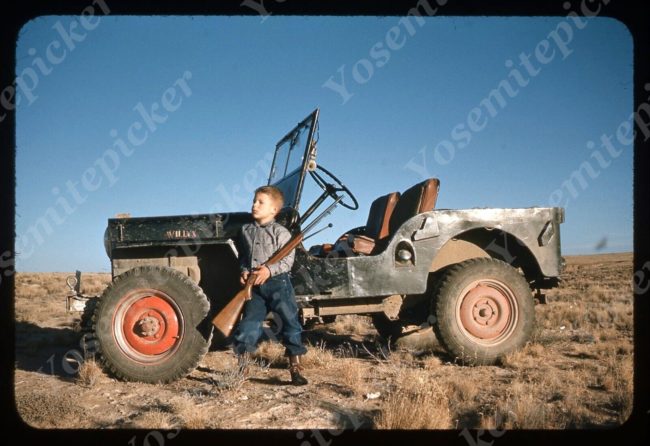This CJ-2A featured prominently in this series of family photos. You can find the photos on this seller’s ebay shop.

This CJ-2A featured prominently in this series of family photos. You can find the photos on this seller’s ebay shop.

UPDATE II: You may remember that back in May we discussed Sterand vs. Sternad and the fact that a vehicle called the Sterand made in 1902 was making the rounds on the internet, but that it was actually a Sternad from 1917…..
Well, this https://www.facebook.com/marketplace/item/657343822895942/ popped up on my FB feed yesterday. Listed as a 1902 Sterand in the ad (and available for $325k), I inserted myself into the discussion with my “expertise” only to learn that the seller has a title listing his vehicle as a 1902 Sterand and that his isn’t the 1917 version. Wait, what?
Moreover, if you compare the seller’s vehicle to the one in the postcard, you can see the seller’s vehicle has at least one difference: the seller’s vehicle has a cylinder part that doesn’t exist in the postcard version. Maybe someone else can better sort out the history behind these two almost identical vehicles.
============
UPDATE: The correct name of this vehicle is Sternad not Sterand, built by Anton (Andrew) Frank Sternad in 1917. As Mark notes in the comments, there is more information on it here: http://coachbuilt.com/bui/s/sternad/sternad.htm
================
Originally published May 5, 2023:
Merlin mentioned this vehicle (and article), called the Sterand Loco, in a Facebook post. Various sourced indicate it was built in 1902, but he felt it looked more like a 1920s build. I agree with him, that it is a cool car, but I am not steeped enough in early car history to know for sure when it might have been built.
After some internet searches, I found the engine was consistent with 1902 (a Rutenber 4 cylinder engine). However, after Googling and checking newspaper articles prior to 1920, I could not find what I felt was a definitive source for the date of the vehicle’s creation (no info on why it is called a Sterand or any promotion surrounding it’s inception). The most I could find was a postcard (from this website) that discussed what the article stated.
Still, it’s a cool car.
This looks like the initial one-screw style of Free-Lock Hubs: http://www.ewillys.com/2021/09/09/free-lock-hubs/
“Working on selling parts for my dad who is 82 years old. Is a bit tough to get information because of his memory. I will do my best. He says he bought these hubs for his 1946 Willys Jeep years ago. They seem to be in fine condition. He has had his parts stored for a number of years.”
Originally Published Feb 12, 2014: Davis Farm Contracting tried everything, but a jeep proved the most satisfactory vehicle for their company.
John B. is a fan of Rod Taylor, an actor who starred in the short-lived 1971 TV series “Bearcats”, which John watched as a teen. I was six in 1971 and don’t remember ever watching it. Here’s an introduction to it:
The reason this top surfaced is because John sent me a photo showing Rod Taylor with a CJ-5. The question is, does it have a Tux package? It appears to have chrome hood latches and a chrome bumper, but the bumper is straight and not curved like a Tux Park package. Did the 1961-63 Tux Packages ever used a straight bumper like that?
This Gasoline Ration Book prominently features a Ford GP-looking jeep.
View all the information on eBay
““Sinclair Oil Willys Jeep WWII Uncle Sam Gasoline Ration Book Alton IL. 4 X 2 inch paper folder/sleeve with mileage card and ration stamps. honest wear from use and age.”
Kind of a curious thing to put on the front of a jeep?
View all the information on eBay
“Lot of slides as shown. Each feature the same Jeep with Jeep Is Mine J.I.M. on front. Probably in the Washington State or Alaska area based on other slides from same estate.”
Other than a few ads, it isn’t clear what’s inside this booklet or how many pages it is.
View all the information on eBay
“Vintage 7th Annual National Jeep O Rama 1967 Denver Colorado.”
UPDATE: This was first published just over 10 years ago on October 17, 2013.
This testimonial comes from a cemetery in Springfield, Massachusetts, that espouses the lawn-friendliness of the jeep.
The CJ-6 shown on this postcard is described as the “typical hunting rig used throughout the Valley” and by valley they mean the Lower Rio Grande Valley of Texas.
View all the information on ebay
“Vintage Postcard – Hunter Hunting – Rifle – Jeep – Lower Rio Grande Valley Texas – TX
Standard Size Postcard
Condition – This is a vintage postcard. Please allow for age and wear.”